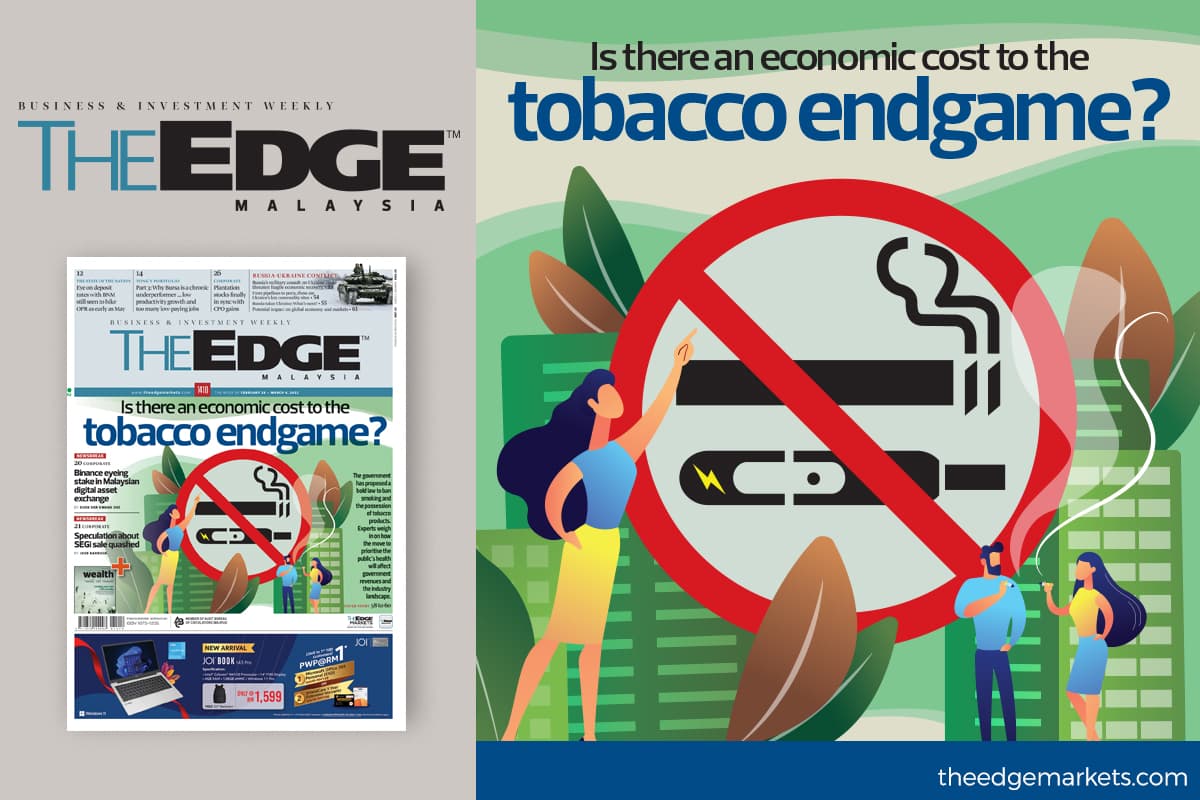
KUALA LUMPUR (Feb 26): The three largest tobacco companies, which collectively control 95% of the legal industry’s market share, have long been fighting the scourge of counterfeit or illegal tobacco trade in the country. At the heart of that fight is the high prevalence of illicit cigarettes — and how they rob the country of RM5 billion in unpaid taxes every year.
Yet, just as British American Tobacco (Malaysia) Bhd (BAT Malaysia), JT International Bhd (JTI Malaysia) and Philip Morris (Malaysia) Sdn Bhd (PMM) were making headway, a new threat has recently emerged, with the question mark over their contribution to the economy never more pronounced.
What will the impact be on the economy if Malaysia were to introduce a new law to ban smoking and the possession of tobacco products, including vapes?
Apart from the annual RM5 billion revenue loss from illicit tobacco trade, will the ban create a bigger black market? Does the country actually need investments from the tobacco industry?
On Feb 17, Minister of Health Khairy Jamaluddin announced that Malaysia would introduce a radical new law to ban smoking and possession of tobacco products, including vapes, for people born after 2005, as part of a “generational endgame” for smoking in the country.
Khairy was reported as saying that the country hoped to pass the legislation this year. This effectively means that Malaysians who turn 17 this year, and those who are younger, will never be able to legally buy cigarettes and other tobacco products for the rest of their lives.
The proposed law has been met with mixed reactions in Malaysia. Concerns have been raised about a growing black market for tobacco.
In the latest issue of The Edge Malaysia weekly, the Confederation of Malaysian Tobacco Manufacturers, which comprises BAT Malaysia, JTI Malaysia and PMM, points out that the proposal, while similar to that of New Zealand, is untested, unproven and without any scientific evidence.
Still, proponents of the proposed law are of the view that as a responsible government, it would have to prioritise the collective health cost over the profit of tobacco companies.
In a December 2019 interview with The Edge, former deputy health minister Dr Lee Boon Chye said studies had shown that the government and the private sector each spend RM7 billion to RM8 billion a year to treat smoking-related illnesses such as lung cancer and heart problems. “This brings the total cost to about RM16 billion a year,” he said, adding that the RM5 billion in lost excise duty and sales tax revenue pales in comparison to the cost of treating patients with smoking-related illnesses.
What should Malaysia do?
Read more about it in The Edge Malaysia weekly’s Feb 28 edition.
Save by subscribing to us for your print and/or digital copy.
P/S: The Edge is also available on Apple's AppStore and Androids' Google Play.